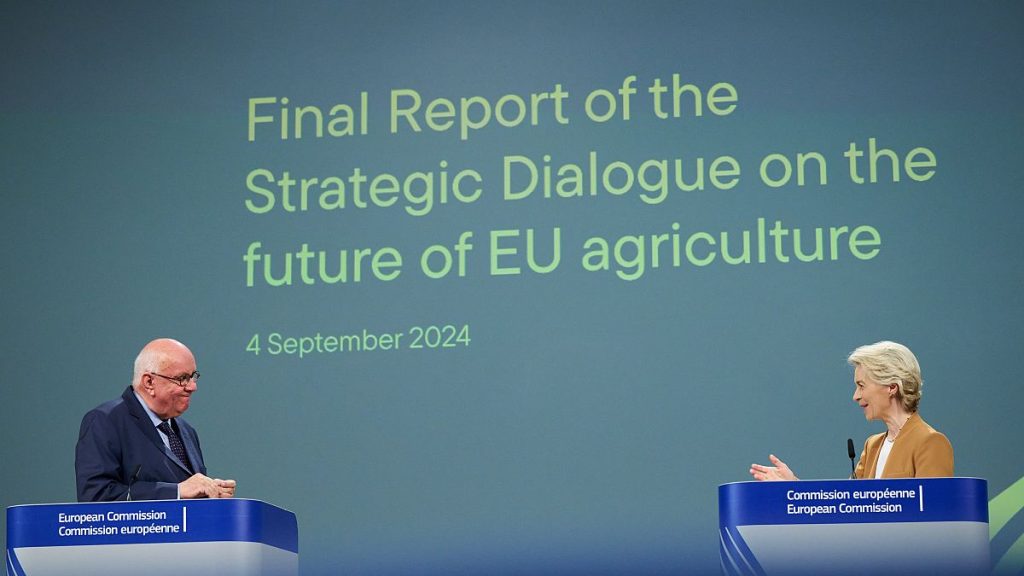Commission chief Ursula von der Leyen has been called upon to initiate a new era in EU food policy and revamp the current Common Agricultural Policy (CAP) system following recommendations from a reflection group. The group, composed of representatives from various sectors including farmers’ cooperatives, NGOs, and academia, worked for over seven months to craft a vision for the future of European agri-food systems. The final report, which highlights the urgency of reforming food systems and stresses the importance of cooperation across the food value chain, was presented to von der Leyen by chairman Professor Peter Strohschneider. The report addresses the need to reform the CAP system, suggesting a shift from area-based payments to an effective income support approach to ensure that public money is used efficiently and effectively.
One of the key recommendations from the report is the creation of an Agri-food Just Transition Fund, separate from the CAP budget, to support farmers in transitioning to more sustainable practices. The report also proposes mandatory environmental practices tied to EU subsidies, promoting environmental sustainability without making practices compulsory. In addition, the report advocates for reducing unnecessary bureaucracy and ensuring inclusive policy-making processes to support farmers and improve the overall sustainability of EU agriculture. Von der Leyen has committed to studying the recommendations in the report and incorporating them into the vision for agriculture and food, with a roadmap expected within the first 100 days of her next mandate.
The report signals a shift in the EU’s approach to food policy, emphasizing trust in farmers, reducing micromanagement, and providing better incentives for sustainable practices. It also recognizes the strategic importance of food and agricultural production in the current geopolitical context and as a vital component of European security. The report calls for a review of the Commission’s trade negotiation strategies and impact assessment methods to ensure alignment with sustainable agricultural practices. The recommendations aim to streamline decision-making processes, reduce bureaucracy, and ensure inclusive policies that support the economic viability of farmers while addressing social responsibilities and labour standards.
In terms of sustainability, the report suggests a broader approach that considers ecological, economic, and social factors. It recommends implementing social conditionality within the CAP to link EU funds to compliance with minimum labour standards. The report also proposes the development of a new sustainability benchmarking system to standardize the assessment of sustainable practices across the EU. Additionally, the report suggests the establishment of a stakeholder body, the European Board on Agri-Food (EBAF), to continue the work of the reflection group. EBAF would be responsible for developing, implementing, overseeing, and refining the benchmarking framework, resolving inconsistencies, and monitoring progress towards sustainable agriculture practices.
Overall, the report underscores the need for immediate action in reshaping EU food policy and agriculture systems to address sustainability challenges and support farmers in transitioning to more sustainable practices. By focusing on reforming the CAP system, promoting environmental practices, reducing bureaucracy, and ensuring inclusive decision-making processes, the recommendations aim to create a more efficient, effective, and sustainable food policy framework for the future. Von der Leyen has expressed her commitment to studying the report’s recommendations and incorporating them into a roadmap for the future of EU agriculture and food policy.


